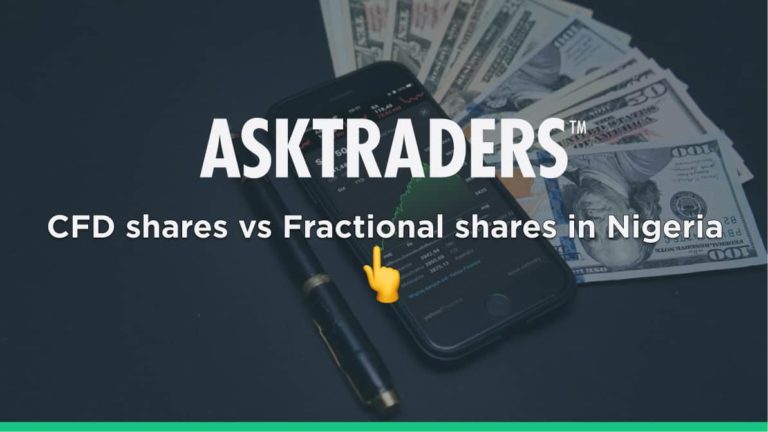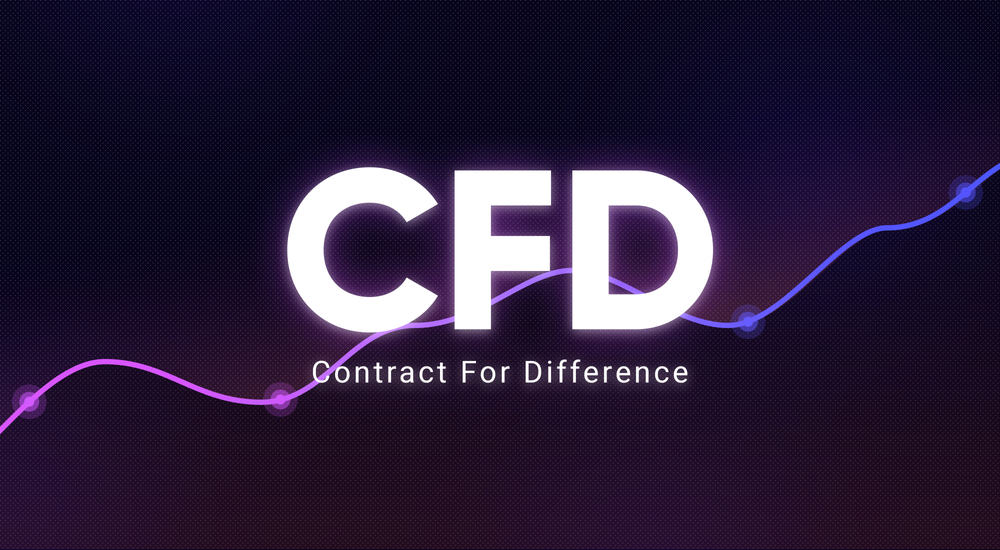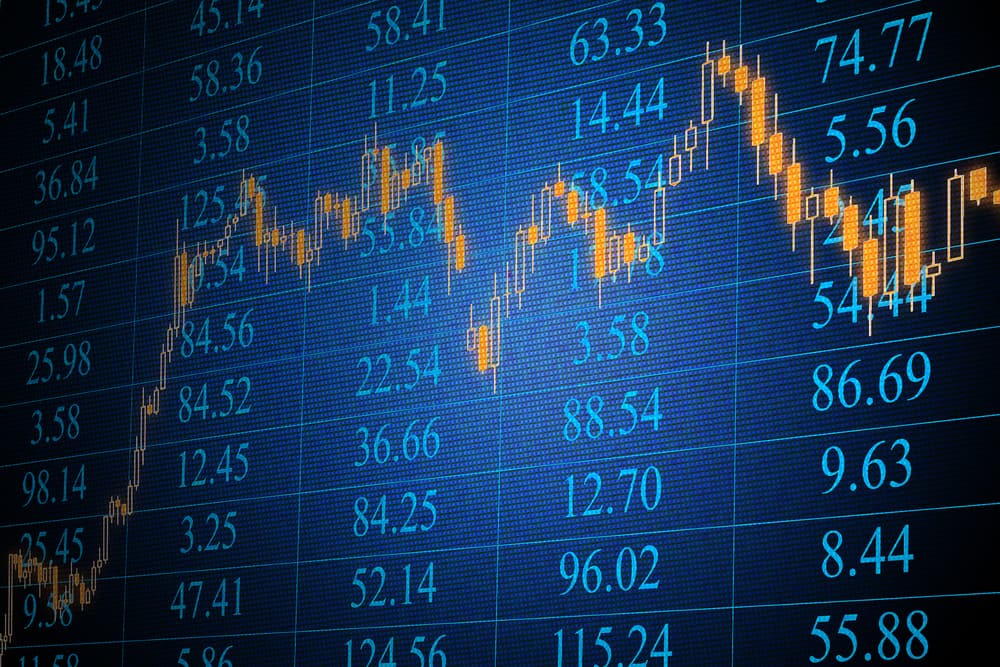
A closer look at Contracts for Difference (CFDs)

A contract for differences (CFD) is an arrangement in the realm of financial derivatives in which the spread between the opening and closing prices of a trade is settled in cash. With CFDs, you are not assured of receiving a particular stock or item.
Contracts for differences are a valuable instrument for trade enthusiasts since CFDs allow for the trading of the price movement of assets and derivatives.
Derivatives are essentially financial investments that are derived from an underlying asset. Traders and investors therefore utilize CFDs to bet on the price movement of the underlying asset or security.
Traders of speculative Contracts for Difference (CFD) can speculate on the price going up or down. CFDs are traded similarly to stocks, with buyers anticipating price increases and sellers anticipating price decreases.
If the price of the underlying asset rises after a CFD has been purchased, the buyer may elect to sell by calculating the difference between the buy and sell prices. The brokerage account is where the investor's trading profit or loss is recorded.
When a decline in the value of a security is anticipated, a sell position is opened. In order to close the position, they must acquire a balancing trade. Once more, the gain or loss is tallied and settled via their account in cash.
Trading CFDs in Nigeria
Contracts for differences may be used to trade many types of assets and securities, including ETFs. Commodity futures contracts, such as those for crude oil and grain, will also be utilized to speculate on price swings by Nigerian merchants.
Futures contracts are typical contracts that bind parties to the future purchase or sale of an asset at a predetermined price and date.
CFDs are not futures contracts, but rather allow investors to trade the price movements of futures. Contracts for difference (CFDs) are traded similarly to other securities, with buy and sell prices and no fixed expiration dates.
CFDs are traded over-the-counter (OTC) by a group of brokers who coordinate supply and demand to set pricing. In other words, CFDs are not traded on major exchanges such as the New York Stock Exchange (NYSE).
CFDs are tradable agreements between a client and broker in which the parties exchange the difference between the opening and closing prices of a trade.
A closer look at fractional shares

A share of equity that has a value that is less than that of one complete share is referred to as a fractional share. These shares might be the end product of a stock split, a dividend reinvestment plan (DRIP), or some other corporate action.
The limited availability of fractional shares on the stock market makes it difficult, if not impossible, for investors to acquire them. Despite the fact that investors would benefit from such ownership, it is often not practicable to do so.
The formation of fractional shares can be accomplished by a wide variety of strategies, including stock splits, mergers, and acquisitions.
Fractional shares through mergers and acquisitions
A firm may issue fractional shares in the event of a merger or acquisition, as new common stock is frequently merged by a fixed ratio. Due to the ratio, shareholders may be left with a fraction of a share.
Certain brokerages may split full shares on purpose in order to offer consumers smaller quantities of stock. Commonly, huge stocks, such as Amazon, undergo this type of share split.
Fractional shares through stock splits
In certain instances, the remaining number of shares following a stock split will be divisible by 2. Following a 3-for-2 stock split, investors who own an odd number of shares would end up with a fraction of a share, as they would receive three shares for every two shares they own.
Fractional shares through dividend reinvestment plans
Nigerian investors who participate in dividend reinvestment plans (DRIP) may acquire a combination of entire and fractional shares. Dividend reinvestment programs permit Nigerian owners to reinvest dividend payments in additional shares of the same firm or mutual fund.
This is not limited to whole shares because the funds are reinvested to purchase additional stock. A fractional share may also be acquired through the reinvestment of capital gain distributions or participation in a dollar-cost-averaging program.
Trading fractional shares in Nigeria

In Nigeria, fractional shares can only be joined with other fractional shares to produce a complete share for sale through a major brokerage. If there is a lack of market demand for the selling stock, selling fractional shares may take longer than anticipated.
Some Nigerian investors may not be interested in maintaining fractional shares after mistakenly acquiring them through stock splits.
If the stock in question is in high demand, they may be able to find a brokerage firm willing to purchase fractional shares. They could also attempt to discover a Nigerian brokerage firm prepared to sell another half share.
Benefits of trading CFDs in Nigeria
Contracts for difference (CFDs) enable Nigerian investors to participate in the ups and downs of the underlying security market without actually purchasing or receiving the underlying asset.
Margin CFD trading is made feasible by the ability to borrow cash from one's broker in order to enhance leverage or position size in order to magnify gains. Before approving this type of trade, brokers in Nigeria will need traders to maintain a minimum account balance.
In the majority of instances, CFDs offer larger leverage than more conventional trading methods.
CFD markets are generally subject to less limitations than regular exchanges. Therefore, the minimum deposit required to start a CFDs brokerage account may be lower.
For the majority of Nigerian brokers, the minimum opening deposit is $ 1,000. In addition, cash dividends handed out on CFDs can boost a trader's return on investment, as these instruments reflect genuine corporate actions.
The vast majority of CFD brokers offer products on all significant markets. Traders can access all available markets using the interface of their broker.
A trader in Nigeria can open a long or short position, as well as a buy and sell position, with minimal effort when using CFDs. On the CFD market, short selling is often authorized. It is always possible to short an instrument.
As no underlying asset is actually owned, there are no borrowing or shorting fees. In addition, CFD trading often incurs minimal to no costs.
The spread is the difference between the ask and bid prices that is earned by the broker on every trade. Brokers get a commission based on the difference between the quoted ask and bid prices.
Benefits of trading fractional shares in Nigeria

It is known as “fractional share investing” to be able to invest in less than a whole share at once. This can be a useful option for potential investors when share prices are excessively high. This allows shareholders to make precise financial investments in the firm.
Investing in a company with a high stock price does not require you to wait until you can afford to purchase a whole share of the stock. There is no need to invest a huge chunk of money to get started.
If the market does not enable fractional share investing, you can only buy stocks and ETFs in increments equal to the share price. Instead of having to acquire whole shares, you can purchase fractional shares and invest the exact amount you desire.
For precise asset allocation, it can be difficult to acquire shares in Nigerian companies entirely in full share increments. Due to fractional shares, it is feasible to invest in numerous enterprises with a single dollar.
Final thoughts
Trading contracts for difference (CFDs) and fractional shares are both types of trading that do not require the investor to fully own the asset that is being traded.
The most significant distinction lies in the fact that when you engage in contract-for-difference (CFD) trading, you are making a wager on the underlying price of the asset, whereas when you possess fractional shares, you only own a piece of the share value.
For traders in Nigeria, contracts for difference (CFDs) and fractional shares each offer their own unique set of benefits. Nevertheless, CFDs are often simpler to trade, access, and resell on the markets than other financial instruments.
Therefore, the best strategy for the majority of traders in Nigeria would be to begin with trading CFD shares, and then move on to exploring fractional shares when they reach a point in their trading careers where their portfolios allow them to invest in share values that they possibly will not be able to sell so quickly.




